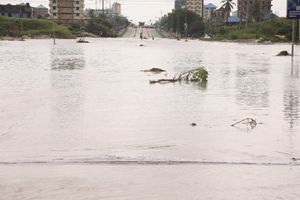Medical practitioners spar over recognition

What you need to know:
- The Parliamentary Committee on Social Services and Community Development yesterday invited stakeholders of the medical profession to air their views on the Medical, Dental and Allied Health Professionals Bill, 2016, which is under committee review before it is forwarded to the National Assembly for its second hearing.
Dodoma. A meeting between lawmakers on one side and doctors, medical assistants, and clinical officers on the other yesterday degenerated into a default supremacy war and a miniature battle for recognition pitting representatives of health practitioners.
The Parliamentary Committee on Social Services and Community Development yesterday invited stakeholders of the medical profession to air their views on the Medical, Dental and Allied Health Professionals Bill, 2016, which is under committee review before it is forwarded to the National Assembly for its second hearing.
According to Section 20 of the Bill, for one to be recognised and licensed as a doctor, he or she is supposed to be a holder of a degree of medicine or dentistry from a recognised institution.
However, this categorisation did not augur well with medical assistants and clinical officers. A representative of their umbrella organisation, the Association of Medical Practitioners of Tanzania (Amept), Ms Sarah Kadula, told the committee that the Bill is sidelining the two cadres, despite their vital contribution and importance to the country’s health sector.
“Mr chairman for years now we have been working tirelessly, day and night to save lives of hundreds of thousands of Tanzanians, yet today, this Bill is not recognising us as practitioners,” she observed adding, “All assistant medical officers or assistant dental or clinical officers are holders of advanced diplomas and not a degree. They are trained from institutions established by the government.”
The association pleaded with the committee to understand their position and amend the Bill to recognise their cadres so that they can continue to execute their duties as professionals.
That position was, however, challenged by the Medical Association of Tanzania (MAT), whose chairman, Dr Obadia Nyongole, argued: “There are international standards governing these issues. I would suggest the assistant medical officers be defined in the manner that does not contradict with the World Health Organisation (WHO). As the Bill states, WHO also recognises a doctor as one holding a bachelor’s degree in medicine or dentistry.”
There were suggestions that assistant medical officers should be included among allied health professionals, but that was also challenged by the Association of Physiotherapist in Tanzania (APTA).
According to the president of APTA, Dr Remla Shirima, the Bill must also be universally accepted since the country is a member of regional and international bodies.
The committee adjourned the session to today when MPs meet with government to deliberate on stakeholders’ suggestions.




